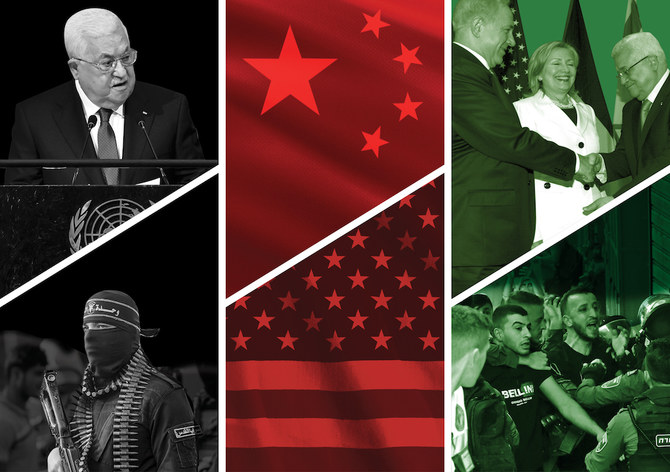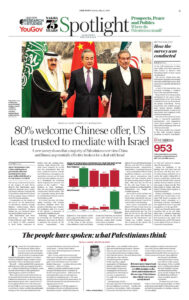
- ARAB NEWS
- 30 Jun 2025

To mark the 75th anniversary of the Palestinian Nakba, which occurred on this day in 1948, the Arab News Research and Studies Unit decided to commission leading global polling firm, YouGov, to conduct our latest landmark study: Prospects, Peace, and Politics. Where do Palestinians stand?
The poll — which included 953 respondents of both genders with ages ranging from 18 to 45 — within the Palestinian Territories, comes at a time where there is little optimism of achieving peace or justice for them.
This is due to facts on the bitter reality on the ground which includes divisions among Palestinians themselves, an ultra-right-wing government in Israel, and a current lack of a serious global effort to move the status quo forward.
Still, it is now more important than ever before to obtain credible data and insight relating to the views and sentiments of the average Palestinians, since their voices are rarely heard — despite that it is their cause that is often being debated worldwide on their behalf.
After 75 years, and with so much grief, failed peace attempts, and a continued illegal occupation, it comes as no surprise that the pulse on the Palestinian street sees itself further from peace — or a form of respectable resolution — than ever before.
It is now more important than ever before to obtain credible insights to the views and sentiments of the average Palestinians, since their voices are rarely heard.
Faisal J. Abbas, Editor-in-Chief
Indeed, it reveals a painful reality that the average Palestinian has no confidence in his/her own government — with 75 percent stating that their current leadership was incapable of negotiating peace. The same applied to the current Israeli government, for which 86 percent felt was not serious about signing a peace treaty.
Unsurprisingly as well, the majority of Palestinians (66 percent) did not trust any Israeli government – neither left-wing nor right-wing – to successfully reach a peace agreement with their government.
Interestingly too, most respondents surveyed (63 percent) found themselves relating neither with Fatah nor Hamas.
The study showed that while the two-state solution was still the preferred option for the majority, a significant number of Palestinians said they would not mind a federal option (21 percent), merging into one state and getting Israeli citizenship (13 percent), or going back to live under full occupation (11 percent).
Unsurprisingly, the US — although a majority of Palestinians admit has the most influence over Israel — was the least trusted as a fair mediator, while a whooping 80 percent welcomed the recent Chinese offer to mediate a solution. Given the so far successful Chinese effort between Saudi Arabia and Iran, this is not a surprise.
As I mentioned back in 2017 when we started our collaboration with YouGov, these polls that our Research and Studies Unit commission are consistent with our wider journalistic mission: To be a credible source of information about the Arab world for regional and international readers, and to provide insights about the Middle East and North Africa to English speakers worldwide.
We hope this Arab News/YouGov study sheds important light on what is in the hearts and minds of Palestinian people and aids decisionmakers in finding a solution for their plight.
